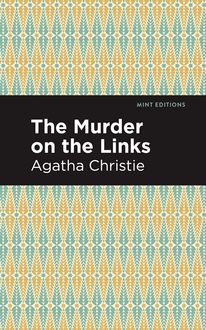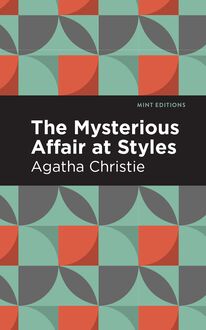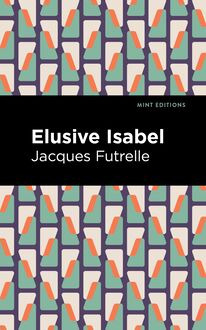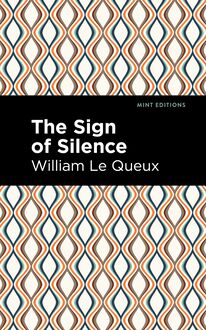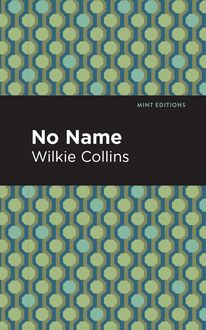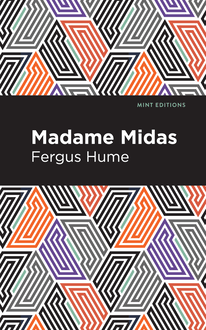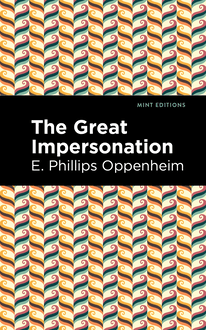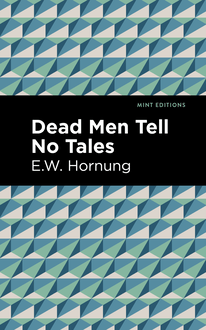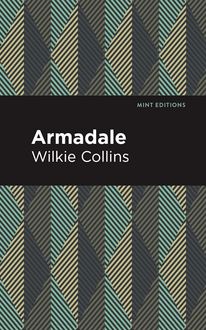-
 Univers
Univers
-
 Ebooks
Ebooks
-
 Livres audio
Livres audio
-
 Presse
Presse
-
 Podcasts
Podcasts
-
 BD
BD
-
 Documents
Documents
-
- Cours
- Révisions
- Ressources pédagogiques
- Sciences de l’éducation
- Manuels scolaires
- Langues
- Travaux de classe
- Annales de BEP
- Etudes supérieures
- Maternelle et primaire
- Fiches de lecture
- Orientation scolaire
- Méthodologie
- Corrigés de devoir
- Annales d’examens et concours
- Annales du bac
- Annales du brevet
- Rapports de stage
La lecture à portée de main
Vous pourrez modifier la taille du texte de cet ouvrage
Découvre YouScribe en t'inscrivant gratuitement
Je m'inscrisDécouvre YouScribe en t'inscrivant gratuitement
Je m'inscrisEn savoir plus
Vous pourrez modifier la taille du texte de cet ouvrage
En savoir plus

Description
The Hollow Needle (1910) is a novel by Maurice Leblanc. Originally serialized in in Je sais tout, a popular French magazine, The Hollow Needle is a crime and adventure novel featuring the legendary Arsène Lupin. Partly based on the life of French anarchist Marius Jacob, Lupin first appeared in print in 1905 as an answer to Sir Arthur Conan Doyle’s Sherlock Holmes. Blending crime fiction, fantasy, and mystery, Leblanc crafts original and entertaining tales of adventure starring one of the greatest literary characters of all time—Arsène Lupin, gentleman thief.
Arsène Lupin is the world’s greatest thief, an unmatched force for good whose exploits threaten the wealth and standing of France’s most wicked men. In this installment of Leblanc’s beloved series, Lupin uses his remarkable wit and chameleon-like ability to move undetected through aristocratic society in order to steal, trick, and cheat his way through life. Despite his criminal nature, he operates under a strict moral code, only taking from those who have taken from the poor all their lives. In this novel, Lupin discovers the secret of the Kings of France, leading him to a hidden hoard of jewels passed down since the days of the Roman Empire. On his trail is amateur detective Isidore Beautrelet, a high school boy determined to stop Lupin from completing the theft of a lifetime. Despite his youth and inexperience, he proves surprisingly capable of catching the gentleman thief. The Hollow Needle is a story of romance, mystery, and crime that continues to astound over a century after it was published.
With a beautifully designed cover and professionally typeset manuscript, this edition of Maurice Leblanc’s The Hollow Needle is a classic of French literature reimagined for modern readers.
Sujets
Informations
| Publié par | Mint Editions |
| Date de parution | 24 mars 2021 |
| Nombre de lectures | 0 |
| EAN13 | 9781513295213 |
| Langue | English |
| Poids de l'ouvrage | 1 Mo |
Informations légales : prix de location à la page 0,0500€. Cette information est donnée uniquement à titre indicatif conformément à la législation en vigueur.
Extrait
The Hollow Needle
Maurice Leblanc
The Hollow Needle was first published in 1909.
This edition published by Mint Editions 2021.
ISBN 9781513292366 | E-ISBN 9781513295213
Published by Mint Editions®
minteditionbooks.com
Publishing Director: Jennifer Newens
Design & Production: Rachel Lopez Metzger
Project Manager: Micaela Clark
Translated By: Alexander Teixeira De Mattos
Typesetting: Westchester Publishing Services
C ONTENTS I. T HE S HOT II. I SIDORE B EAUTRELET , S IXTH - FORM S CHOOLBOY III. T HE C ORPSE IV. F ACE TO F ACE V. O N THE T RACK VI. A N H ISTORIC S ECRET VII. T HE T REATISE OF THE N EEDLE VIII. F ROM C AESAR TO L UPIN IX. O PEN , S ESAME ! X. T HE T REASURES OF THE K INGS OF F RANCE
I
T HE S HOT
R aymonde listened. The noise was repeated twice over, clearly enough to be distinguished from the medley of vague sounds that formed the great silence of the night and yet too faintly to enable her to tell whether it was near or far, within the walls of the big country-house, or outside, among the murky recesses of the park.
She rose softly. Her window was half open: she flung it back wide. The moonlight lay over a peaceful landscape of lawns and thickets, against which the straggling ruins of the old abbey stood out in tragic outlines, truncated columns, mutilated arches, fragments of porches and shreds of flying buttresses. A light breeze hovered over the face of things, gliding noiselessly through the bare motionless branches of the trees, but shaking the tiny budding leaves of the shrubs.
And, suddenly, she heard the same sound again. It was on the left and on the floor below her, in the living rooms, therefore, that occupied the left wing of the house. Brave and plucky though she was, the girl felt afraid. She slipped on her dressing gown and took the matches.
“Raymonde—Raymonde!”
A voice as low as a breath was calling to her from the next room, the door of which had not been closed. She was feeling her way there, when Suzanne, her cousin, came out of the room and fell into her arms:
“Raymonde—is that you? Did you hear—?”
“Yes. So you’re not asleep?”
“I suppose the dog woke me—some time ago. But he’s not barking now. What time is it?”
“About four.”
“Listen! Surely, some one’s walking in the drawing room!”
“There’s no danger, your father is down there, Suzanne.”
“But there is danger for him. His room is next to the boudoir.”
“M. Daval is there too—”
“At the other end of the house. He could never hear.”
They hesitated, not knowing what course to decide upon. Should they call out? Cry for help? They dared not; they were frightened of the sound of their own voices. But Suzanne, who had gone to the window, suppressed a scream:
“Look!—A man!—Near the fountain!”
A man was walking away at a rapid pace. He carried under his arm a fairly large load, the nature of which they were unable to distinguish: it knocked against his leg and impeded his progress. They saw him pass near the old chapel and turn toward a little door in the wall. The door must have been open, for the man disappeared suddenly from view and they failed to hear the usual grating of the hinges.
“He came from the drawing room,” whispered Suzanne.
“No, the stairs and the hall would have brought him out more to the left—Unless—”
The same idea struck them both. They leant out. Below them, a ladder stood against the front of the house, resting on the first floor. A glimmer lit up the stone balcony. And another man, who was also carrying something, bestrode the baluster, slid down the ladder and ran away by the same road as the first.
Suzanne, scared to the verge of swooning, fell on her knees, stammering:
“Let us call out—let us call for help—”
“Who would come? Your father—and if there are more of them left—and they throw themselves upon him—?”
“Then—then—we might call the servants—Your bell rings on their floor.”
“Yes—yes—perhaps, that’s better. If only they come in time!”
Raymonde felt for the electric push near her bed and pressed it with her finger. They heard the bell ring upstairs and had an impression that its shrill sound must also reach any one below.
They waited. The silence became terrifying and the very breeze no longer shook the leaves of the shrubs.
“I’m frightened—frightened,” said Suzanne.
And, suddenly, from the profound darkness below them, came the sound of a struggle, a crash of furniture overturned, words, exclamations and then, horrible and ominous, a hoarse groan, the gurgle of a man who is being murdered—
Raymonde leapt toward the door. Suzanne clung desperately to her arm:
“No—no—don’t leave me—I’m frightened—”
Raymonde pushed her aside and darted down the corridor, followed by Suzanne, who staggered from wall to wall, screaming as she went. Raymonde reached the staircase, flew down the stairs, flung herself upon the door of the big drawing room and stopped short, rooted to the threshold, while Suzanne sank in a heap by her side. Facing them, at three steps’ distance, stood a man, with a lantern in his hand. He turned it upon the two girls, blinding them with the light, stared long at their pale faces, and then, without hurrying, with the calmest movements in the world, took his cap, picked up a scrap of paper and two bits of straw, removed some footmarks from the carpet, went to the balcony, turned to the girls, made them a deep bow and disappeared.
Suzanne was the first to run to the little boudoir which separated the big drawing-room from her father’s bedroom. But, at the entrance, a hideous sight appalled her. By the slanting rays of the moon, she saw two apparently lifeless bodies lying close to each other on the floor. She leaned over one of them:
“Father!—Father!—Is it you? What has happened to you?” she cried, distractedly.
After a moment, the Comte de Gesvres moved. In a broken voice, he said:
“Don’t be afraid—I am not wounded—Daval?—Is he alive?—The knife?—The knife?—”
Two men-servants now arrived with candles. Raymonde flung herself down before the other body and recognized Jean Daval, the count’s private secretary. A little stream of blood trickled from his neck. His face already wore the pallor of death.
Then she rose, returned to the drawing room, took a gun that hung in a trophy of arms on the wall and went out on the balcony. Not more than fifty or sixty seconds had elapsed since the man had set his foot on the top rung of the ladder. He could not, therefore, be very far away, the more so as he had taken the precaution to remove the ladder, in order to prevent the inmates of the house from using it. And soon she saw him skirting the remains of the old cloister. She put the gun to her shoulder, calmly took aim and fired. The man fell.
“That’s done it! That’s done it!” said one of the servants. “We’ve got this one. I’ll run down.”
“No, Victor, he’s getting up… You had better go down by the staircase and make straight for the little door in the wall. That’s the only way he can escape.”
Victor hurried off, but, before he reached the park, the man fell down again. Raymonde called the other servant:
“Albert, do you see him down there? Near the main cloister?—”
“Yes, he’s crawling in the grass. He’s done for—”
“Watch him from here.”
“There’s no way of escape for him. On the right of the ruins is the open lawn—”
“And, Victor, do you guard the door, on the left,” she said, taking up her gun.
“But, surely, you are not going down, miss?”
“Yes, yes,” she said, with a resolute accent and abrupt movements; “let me be—I have a cartridge left—If he stirs—”
She went out. A moment later, Albert saw her going toward the ruins. He called to her from the window:
“He’s dragged himself behind the cloister. I can’t see him. Be careful, miss—”
Raymonde went round the old cloisters, to cut off the man’s retreat, and Albert soon lost sight of her. After a few minutes, as he did not see her return, he became uneasy and, keeping his eye on the ruins, instead of going down by the stairs he made an effort to reach the ladder. When he had succeeded, he scrambled down and ran straight to the cloisters near which he had seen the man last. Thirty paces farther, he found Raymonde, who was searching with Victor.
“Well?” he asked.
“There’s no laying one’s hands on him,” replied Victor.
“The little door?”
“I’ve been there; here’s the key.”
“Still—he must—”
“Oh, we’ve got him safe enough, the scoundrel—He’ll be ours in ten minutes.”
The farmer and his son, awakened by the shot, now came from the farm buildings, which were at some distance on the right, but within the circuit of the walls. They had met no one.
“Of course not,” said Albert. “The ruffian can’t have left the ruins—We’ll dig him out of some hole or other.”
They organized a methodical search, beating every bush, pulling aside the heavy masses of ivy rolled round the shafts of the columns. They made sure that the chapel was properly locked and that none of the panes were broken. They went round the cloisters and examined every nook and corner. The search was fruitless.
There was but one discovery: at the place where the man had fallen under Raymonde’s gun, they picked up a chauffeur’s cap, in very soft buff leather; besides that, nothing.
T HE GENDARMERIE OF O UVILLE - LA -R IVIERE WERE informed at six o’clock in the morning and at once proceeded to the spot, after sending an express to the authorities at Dieppe with a note describing the circumstances of the crime, the imminent capture of the chief criminal and “the discovery of his headgear and of the dagger with which the crime had been committed.”
At ten o’clock, two hired conveyances came down the gentle slope that led to the house. One of them, an old-fashioned calash, contained the deputy public prosecutor and the examining magistrate, accompanied by his clerk. In the other, a humble fly, were seated two reporters, representing the Journal de Rouen and a great Paris paper.
The old chateau came into view—once the abbey residence of t
-
 Univers
Univers
-
 Ebooks
Ebooks
-
 Livres audio
Livres audio
-
 Presse
Presse
-
 Podcasts
Podcasts
-
 BD
BD
-
 Documents
Documents
-
Jeunesse
-
Littérature
-
Ressources professionnelles
-
Santé et bien-être
-
Savoirs
-
Education
-
Loisirs et hobbies
-
Art, musique et cinéma
-
Actualité et débat de société
-
Jeunesse
-
Littérature
-
Ressources professionnelles
-
Santé et bien-être
-
Savoirs
-
Education
-
Loisirs et hobbies
-
Art, musique et cinéma
-
Actualité et débat de société
-
Actualités
-
Lifestyle
-
Presse jeunesse
-
Presse professionnelle
-
Pratique
-
Presse sportive
-
Presse internationale
-
Culture & Médias
-
Action et Aventures
-
Science-fiction et Fantasy
-
Société
-
Jeunesse
-
Littérature
-
Ressources professionnelles
-
Santé et bien-être
-
Savoirs
-
Education
-
Loisirs et hobbies
-
Art, musique et cinéma
-
Actualité et débat de société
- Cours
- Révisions
- Ressources pédagogiques
- Sciences de l’éducation
- Manuels scolaires
- Langues
- Travaux de classe
- Annales de BEP
- Etudes supérieures
- Maternelle et primaire
- Fiches de lecture
- Orientation scolaire
- Méthodologie
- Corrigés de devoir
- Annales d’examens et concours
- Annales du bac
- Annales du brevet
- Rapports de stage

